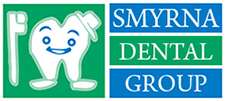Sedation dentistry is the application of sedatives to a patient before a dental procedure to help anxious patients relax and feel less nervous during their dental treatment. There are different stages of sedation, which include light, moderate, deep, and general anesthesia.
Different types of sedation include:
- Nitrous Oxide Sedation: Nitrous oxide or laughing gas is a mild form of sedation that is inhaled through a mask. This type of sedation takes effect within seconds and is used for minor dental procedures like fillings and teeth cleaning. The patient remains conscious throughout the procedure but feels relaxed and calm. This type of sedation does not require monitoring by medical professionals, and the patient can return to work or continue with normal activities after the procedure.
- Oral Conscious Sedation: Oral conscious sedation is administered orally in pill form. It makes the patient feel calm and relaxed. This type of sedation can make one feel dizzy but still will be able to communicate with the dentist if needed.
- IV Conscious Sedation: IV conscious sedation involves administering medication into your veins using an IV line. The medication is injected directly into your bloodstream, making you feel relaxed and calm throughout the treatment. Most patients who receive IV sedation fall asleep and are apt for those with extreme dental anxiety or undergoing prolonged procedures.
- Deep IV Sedation: Deep IV sedation involves administering medication through an IV line into your bloodstream. The medication leads to complete unconsciousness during your treatment. It takes effect within a few minutes and makes you feel groggy upon waking up from the treatment. You have to be accompanied by an adult when you drive home after your visit to the dentist's office.
- General Anesthesia: General anesthesia is administered through an inhaler or mask before your dental procedure begins. It makes you completely unconscious during your appointment, and it requires medical professionals to monitor your vital signs throughout the procedure. You may feel drowsy when you wake up from general anesthesia, so it's essential that an adult accompanies you while driving back home after your appointment.
How can Sedations help me?
There are many benefits of having a comfortable experience at the dentist's office with sedatives, such as:
- It relaxes you during the treatment and takes away your anxiety about dental procedures.
- It helps you stay calm even if you have a phobia of needles or have sensitive teeth during dental procedures like root canals or tooth extractions.
- It makes you unconscious during surgical interventions like bridges or implants so that you don't feel pain during the treatment.
- It reduces pain during invasive procedures like fillings, root canals, tooth extractions, etc., as well as dental surgeries like bridges or implants.
If you are interested in learning more about our services, call Smyrna Dental Group in Smyrna, TN, at (615) 355-6800 to schedule an appointment with our dentists or request an appointment online.






